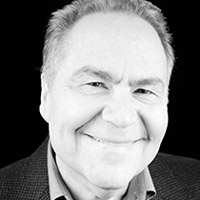The State of the Private Equity Industry—Is It All Down Hill From Here?

In the past private equity has been a solid way of investing taking in trillions of capital, but with the ever changing world we live in, what is the state of the industry? Private equity investments typically consist of money being placed in a company by venture capital firms, private equity firms or angel investors. These are companies that are not publicly traded on any stock exchange and typically they are looking to launch, grow or prepare for a buyout. The money invested is typically aimed at expanding or creating new products or in some cases to fund a restructuring of the company. Private equity is a powerful force in the success of private companies that are not publicly traded. So what is the state of the private equity industry?
The Private Equity Industry Is Healthy
To answer that question, I spoke with Jonathan Coslet, Chief Investment Officer, and Senior Partner of TPG Capital. Jonathan explained that the private equity industry, like all industries, “is maturing but the core raison d’etre for the industry is growing rapidly and that’s because of our core client, our pension funds and our sovereign wealth funds in particular.” Jonathan compared the private equity industry to state governments. He said whereas the average state government is getting about 7-8 percent annually on its investments, the average firm in the private equity industry has returned about 13 or 14 percent every year over the last 30 years. “So it’s been delivering very strong returns against a US stock market that’s maybe 7 or 8 percent. So the need for the pension funds, sovereign wealth funds and insurance companies endowments to outperform fixed income securities and regular way public equities is creating real demand for our services.” Because of these factors the industry is growing and today the private equity industry has about $2 trillion of capital under its control.”
Growth Investing
I asked Jonathan what investment strategies he prefers the most. He mentioned two generic approaches that he would take as an investor: growth and inflection. He explained growth to be the following: “there’s going to be a lot of folks who are 65 and 85 or older so there’s going to be a huge demand for healthcare services. So that’s just a secular growth that’s driven demographically and I need to figure out which part of that sector I want to get in front of because it has the most growth and has a supply-demand imbalance.” It’s important to get in front of something with a growing demand while supply is still lagging because this gives you pricing power.
Inflection Investing
On the other hand, with inflection investing it’s not the slope of the curve, it’s the second derivatives, or the rate of change. “The slope is inflecting up so being in front of something that’s about to change and that usually means an industry that’s being disrupted in transition. It happens to be that healthcare has both characteristics: it’s growing and it’s changing.” When you look for something that has both growth and dynamic change together you find the “hot spots” of investing and if done right it can lead to tremendous success.
Check out my interviews with Jonathan Coslet below. For more interviews with Jonathan Coslet click here!
Jonathan Coslet- Investment Strategies
Jonathan Coslet- The State of Private Equity
Legacy of Service | Cliff Dochterman
About Cliff Dochterman Cliff Dochterman served as the World President of Rotary International from 1992-1993. His professional career was spent in the field of higher education administration. As a youth, being motivated by his brother, Cliff became part of the Boy Scouts of America where he obtained the rank of Eagle scout. He has…
Where does Happiness Come From? | Richard Del Monte
About Richard Del Monte Richard is a CERTIFIED FINANCIAL PLANNER™, Certified Wealth Consultant, and nationally recognized expert on Families and Wealth. Richard has been featured on FOX Business News, The Wall Street Journal, New York Times, Private Opportunities Club, Private Wealth Magazine, Trust & Estates, and Family Wealth Report. A sought after speaker, he…
The Future of Health Care | McKay Thomas
About McKay Thomas Since he was in high school, McKay Thomas has been an entrepreneur. Some of his companies have been, pooltables.com, baby.com and ainda.com Currently he is the co-founder and CEO of First Opinion, a company which matches a personal doctor to to their clients that they can contact 24 hours a day.…
Attention Triggers | Ben Parr
About Ben Parr Ben Parr is an award-winning journalist, author, entrepreneur, investor and expert on attention. Through his unique experience as a leading technology writer, venture capitalist and prolific public speaker, Parr has coached dozens of young startups and Fortune 500 corporations on how to get attention for their products. He was named one…




